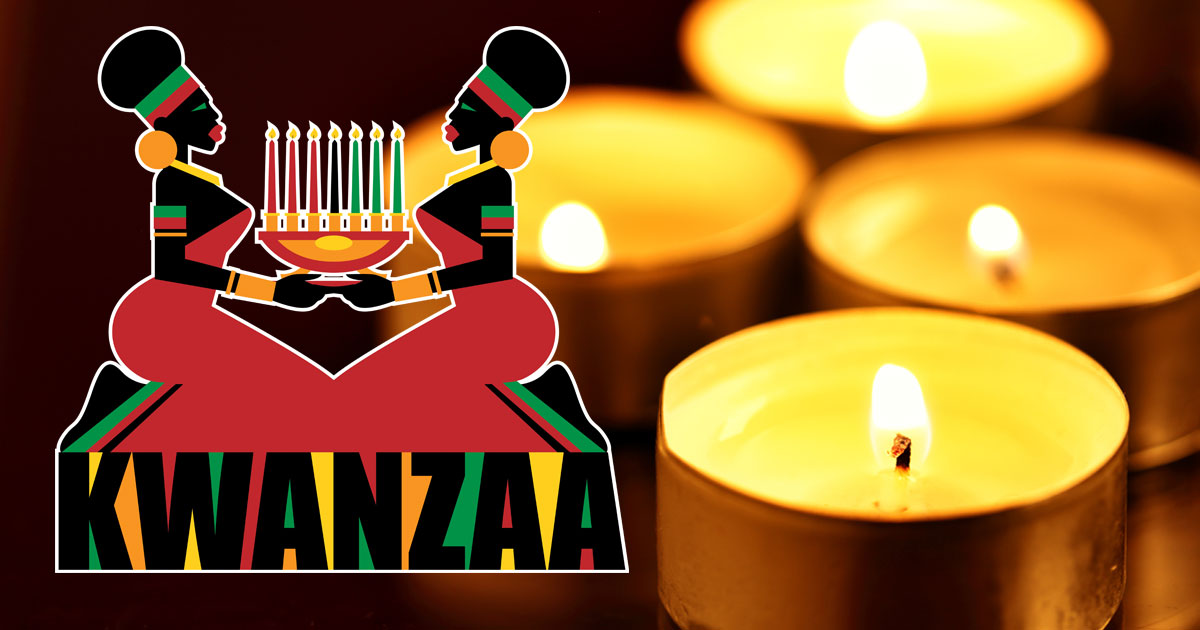KWANZAA
It’s commonly known that Kwanzaa is a pan-African celebration that is also celebrated by many African-Americans who don’t celebrate Christmas. There is a lot to take in about this spiritually-led celebration. Let’s start with the fact that this is a relatively young holiday in comparison to many traditional ones. It was established in 1966 by Dr. Maulana Karenga, a black studies professor. His aim was to bring African-Americans together after many riots were breaking out in the United States. The name “Kwanzaa” derives from the Swahili phrase matunda ya kwanza, meaning first fruits (or harvest season).Many are aware that Kwanzaa is celebrated seven days in a row. But why seven days? What does each day mean? First, the number seven has a powerful spiritual representation—it symbolizes completion. Completion mainly because God created the world in only six days but rested on the seventh day. Each day celebrated during Kwanzaa magnifies on a virtue or ideal personality trait. Each evening during Kwanzaa a candle is lit on the ceremonial candleholder that holds seven candles—called the kinara. Therefore, each evening a different principle is discussed. The seven principles are:
Umoja: unity—striving to keep unity in the family, community, nation, and race.
Kujichagulia: self-determination—to define oneself, speak for oneself, and pursue dreams for oneself.
Ujima: collective work and responsibility—being selfless, building and maintaining community with those around us and being responsible for our loved ones’ problems and solving them together.
Ujamaa: cooperative economics—supporting businesses that cater to the community.
Nia: purpose—being intentional about setting goals that benefit the community and taking action to materialize those goals.
Kuumba: creativity—finding novel ways to make the community better and more beautiful.
Imani: faith—genuinely believing in a better world for the future; believing in our parents, teachers and leaders, and that every struggle induces the birth of victory.
A semblance of all seven of these principles creates a happy person and a healthier world to live in; this is, perhaps, the goal of Kwanzaa as well as bringing black lives together.
The Kwanzaa celebration also comprises seven symbols that are honored during the seven days:
- Mazao: crops (fruits, vegetables, and nuts)—these foods symbolize the harvest season. They also signify work, and pose as the basis of the holiday because Kwanzaa was founded on togetherness and the harvest season. During this season, many African folks gather together and partake in harvest festivals to celebrate joy, unity, sharing, and thanksgiving. For Kwanzaa, the crops are placed on a ceremonial mat (the mkeka).
- Mkeka: placemat—this is either made from straw or cloth and signifies the foundation upon which African lives and communities are built.
- Vibunzi: ear of corn—the cornstalk represents fertility and familial growth. As a cornstalk branches off and brings new ears of corn, so does a family tree sprout and create children. Thus, each ear of corn represents children. During Kwanzaa, only one ear of corn is placed on the mat (mkeka) because it signifies each child in the family. If there are no children, one ear of corn is placed on the mat as a reminder for the parents to be responsible for the children in the village (ever heard of the Nigerian proverb “It takes a village to raise a family”?).
- Mishumaa Saba: the seven candles—these candles vary in three colors: one black candle sitting in the middle of the kinara, three red candles, and three green candles. The black candle, representing “unity,” is the first lighted candle. Every day during Kwanzaa, a new candle is lit to celebrate one of the seven principles that are to be discussed that evening. Candles are lit every evening until all seven are illuminating.
- Kinara: candleholder—this represents ancestry and the expansion of the family.
- Kikombe Cha Umoja: the Unity Cup—celebrants drink from this cup during Kwanzaa to honor their ancestors. The cup is passed around to family members who drink from it as well.
- Zawadi: gifts—gifts are given to promote growth, learning, and achievement.
Of course, Kwanzaa isn’t intended to replace Christmas, nor is it a religious holiday. Rather it is to promote the celebration of African culture and unity.






















